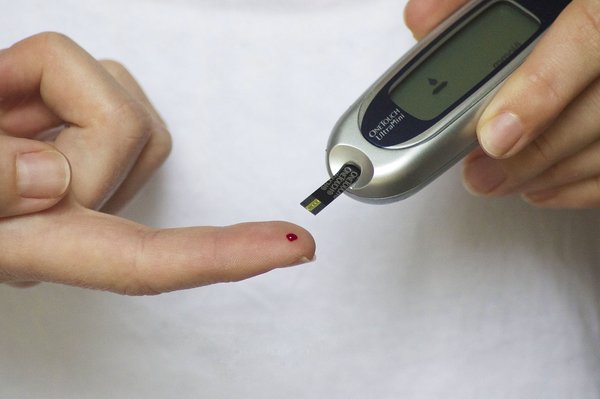Health
How Effective Are Plant-Based Diets in Reducing the Risk of Type 2 Diabetes?
N
Nathan
September 30, 2024
4 min read
In today’s fast-paced world, chronic illnesses such as Type 2 diabetes are becoming increasingly common. Many individuals are turning to plant-based diets as a preventive measure against such conditions. The question arises: How effective are plant-based diets in reducing the risk of Type 2 diabetes? This article aims to explore this question in detail by examining the benefits, scientific studies, and practical considerations of adopting a plant-based diet.
The Basics of Type 2 Diabetes and Plant-Based Diets
Type 2 diabetes is a chronic condition characterized by insulin resistance and high blood sugar levels. Unlike Type 1 diabetes, which is autoimmune in nature, Type 2 diabetes is largely influenced by lifestyle factors, including diet.
A plant-based diet primarily revolves around the consumption of plant foods such as vegetables, fruits, whole grains, nuts, seeds, and legumes. It minimizes or excludes animal products and processed foods. This type of diet is often rich in nutrients and low in harmful fats and sugars, making it a strong candidate for reducing the risk of developing Type 2 diabetes.
Scientific Evidence Supporting Plant-Based Diets
Numerous scientific studies provide compelling evidence that plant-based diets can significantly lower the risk of Type 2 diabetes. One of the landmark studies published in the Journal of the American Medical Association found that individuals who adhered to a plant-based diet had a 34% lower risk of developing Type 2 diabetes compared to those who consumed a diet high in animal products.
Another study conducted by the Harvard School of Public Health revealed that diets rich in whole grains, fruits, vegetables, and nuts are associated with a reduced risk of Type 2 diabetes. The researchers concluded that plant-based diets improve insulin sensitivity and lower inflammation, which are critical in managing and preventing diabetes.
These studies highlight that plant-based diets are not just a fad but a scientifically validated approach to reducing the risk of chronic illnesses, including Type 2 diabetes.
Nutritional Benefits of Plant-Based Diets
Plant-based diets offer a plethora of nutritional benefits that contribute to better health outcomes. These diets are typically high in dietary fiber, which aids in better blood sugar control and promotes a feeling of fullness, helping to prevent overeating.
Moreover, plant-based diets are rich in antioxidants, vitamins, and minerals, which help in reducing oxidative stress and inflammation. Foods such as leafy greens, berries, and nuts are packed with essential nutrients that play a role in maintaining optimal health.
One of the key components of plant-based diets is their low glycemic index, which means they cause a slower and more stable rise in blood sugar levels. This is crucial for managing and preventing Type 2 diabetes. Whole grains, legumes, and non-starchy vegetables are excellent examples of low-glycemic foods that can be incorporated into a plant-based diet.
Furthermore, plant-based diets are low in saturated fats and free from cholesterol, which are commonly found in animal products. This helps in reducing the risk of cardiovascular diseases, which are often comorbid with Type 2 diabetes.
Practical Considerations and Challenges
While the benefits of plant-based diets are well-documented, there are practical considerations and challenges that come with making such a dietary switch. One of the primary concerns is ensuring adequate protein intake. While plant-based diets can provide sufficient protein through sources like legumes, nuts, seeds, and soy products, it requires careful planning.
Another challenge is the potential for nutrient deficiencies, particularly in vitamin B12, iron, and omega-3 fatty acids, which are more abundant in animal products. Supplements or fortified foods can help bridge these nutritional gaps.
It’s also essential to be mindful of processed plant-based foods, which can be high in unhealthy fats, sugars, and sodium. Opting for whole, unprocessed foods is the key to reaping the full benefits of a plant-based diet.
Transitioning to a plant-based diet can be daunting, but small, incremental changes can make the process more manageable. Start by incorporating more plant-based meals into your weekly routine and gradually reduce your consumption of animal products.
So, how effective are plant-based diets in reducing the risk of Type 2 diabetes? The evidence overwhelmingly supports the idea that a plant-based diet can serve as a viable path to diabetes prevention. By focusing on whole, nutrient-dense foods and minimizing processed items, individuals can significantly lower their risk of developing Type 2 diabetes and improve their overall health.
While there are challenges to adopting a plant-based diet, the long-term benefits far outweigh the initial hurdles. By making informed choices and planning carefully, a plant-based diet can be both nutritionally complete and delicious.
In conclusion, embracing a plant-based diet is not just a lifestyle choice but a scientifically supported strategy to reduce the risk of Type 2 diabetes. Whether you are looking to prevent diabetes or manage existing symptoms, a plant-based diet offers a sustainable and effective solution.
Health
View all articles Health →
